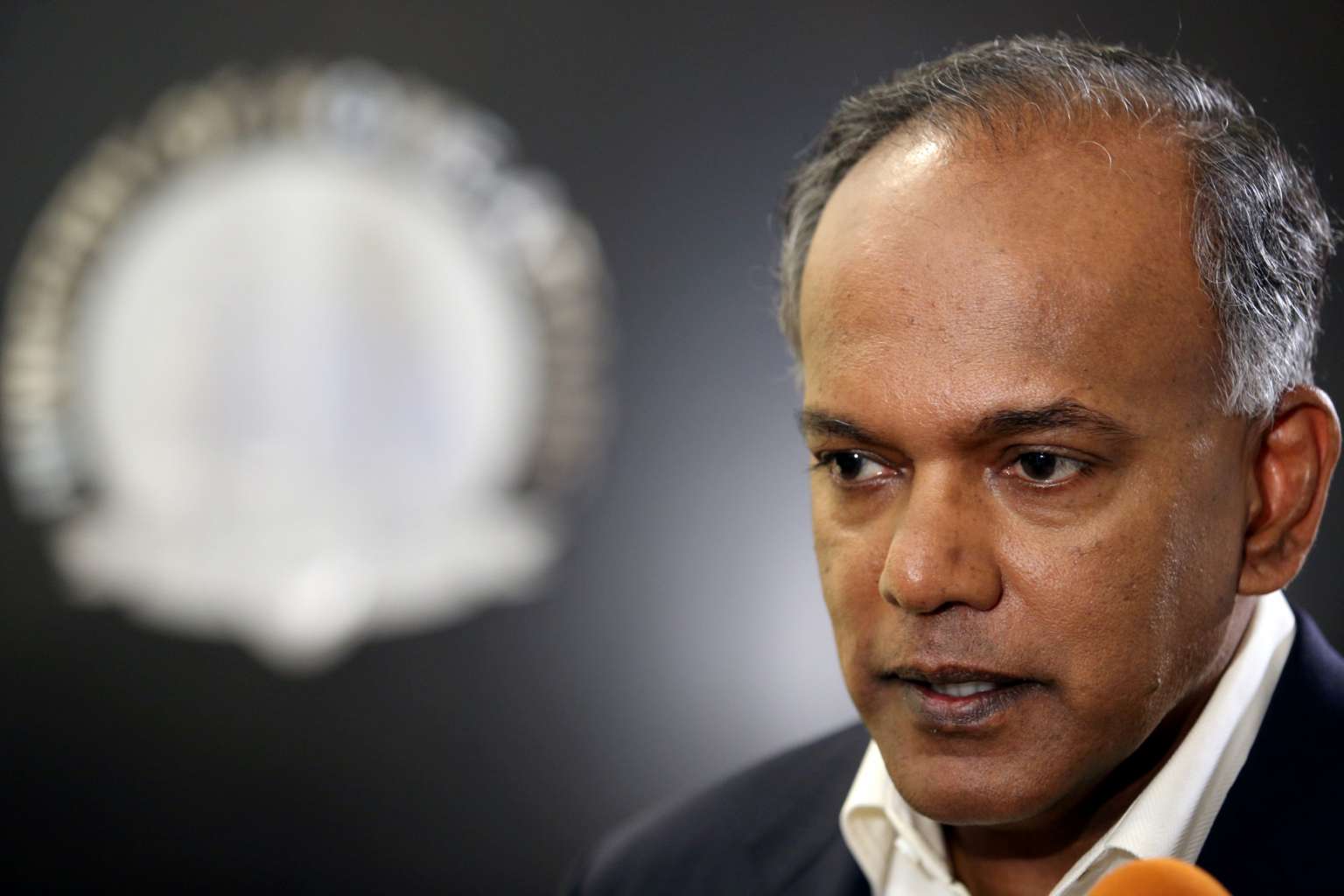Shanmugam outlines Singapore's different approach to issues of race and religion
Sign up now: Get ST's newsletters delivered to your inbox

Home Affairs Minister K. Shanmugam said ethnic differences have not gone away despite a Singaporean identity.
PHOTO: LIANHE ZAOBAO
SINGAPORE - Singapore's management of ethnic and religious differences has dampened the lure of extremism in the country, but global events show the allure of radicalism remains very potent, said Home Affairs Minister K. Shanmugam.
In recent months, there has been a wave of terrorist attacks in Europe and France, in particular, has been hit hard.
This has led some to ask, Why France?, Mr Shanmugam told reporters on Friday (July 29) when the Government announced that four men have been arrested under the Internal Security Act for terrorism-related activities.
While he stressed that he does not have the answer, he noted the "slightly different approach" France and Singapore take on race and religion.
He compared four key areas, even as he acknowledged that France - a large country with a long history - is unlike Singapore.
For instance, French official documents do not record the ethnic identity of its citizens.
In Singapore, identity cards state the race of an individual and some Singaporeans have asked about the need for it.
"Many people say in the IC why are they saying 'race': Chinese, Indian, Malay? Why not just say Singaporeans?" he said.
Although Singapore has somewhat succeeded in forming a Singaporean identity, Mr Shanmugam said ethnic differences have not gone away.
"They are not going to go away any time soon. Let's recognise them and then let's see how we work on them to achieve a higher ideal," he added.
Singapore also forbids the denigration of religion that many Western countries allow in the name of freedom of speech.
"We will not, for example, allow the kind of religious satire that publications can put up of Catholic nuns engaging in sexual acts or burning of the Quran in the US under the framework of freedom of speech.''
He added: "Such publications won't be allowed. Burning of religious books will not be allowed. So we take a stricter approach."
Also, Singapore's housing policies prevent ethnic enclaves from being formed. "We live in mixed communities and that's part of our ethnic integration policy - active intervention by the state," he said.
Such ethnic enclaves are found in many countries, including France, but "whether that resulted in these attacks, I can't say," he stressed.
Singapore also ensures adequate representation of different communities, he said, adding that minorities must feel they have a stake in society and fair participation in all aspects of life, including politics, business and academia.
Singapore's GRCs guarantee minorities are represented in Parliament. "If you had a Parliament that did not have that representation... minority communities will feel different about their say and stake in what's happening."
Based on these fundamentals, Singapore has spent decades building tolerance, acceptance and appreciation across religious and racial lines, Mr Shanmugam said.
It is still a work in progress.
Community and religious leaders also subscribe to "a common vision for Singapore and a Singaporean identity and subscribe to a secular elected government".
Despite the progress, the fight against extremism is ongoing, he said and added:
"Now, we also have to say a big 'no' to extremism and all teachings that tend towards extremism. Otherwise, the ground would become fertile for extremist teachings to be absorbed and then for terrorism."
Returning to the question on why terrorists are targeting France, Mr Shanmugam said: "I'm in no position to say but we do some things differently from France based on our history, our geography, our culture.
"And, so far, it has worked for us but the currents sweeping across the world are very powerful and we are going to face challenging times."


